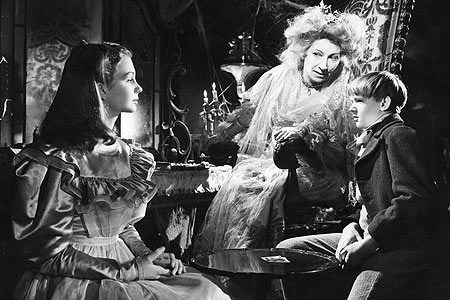Book of a lifetime: Great Expectations by Charles Dickens
From The Independent archive: Thomas Keneally on a life-changing encounter with Pip and Co

Great Expectations was perhaps the first “big book” I really got through at a gallop when I was about 11. Instead of being outside, practising to open the batting for Oz, I began the novel when housebound with asthma in a Sydney suburb of no distinction. I have to say that partway through the book my reading got a fillip when, breathing easier, I saw at the local picture house the magnificent film version directed by David Lean and starring John Mills and Alex Guinness. When in the film Finlay Currie, as the convict Magwitch, jumped out at Pip, it conveyed the same electric shock as it did in the book.
As well as that I loved Joe Gargery as one loves a brother – Dickens was always wonderful at writing fraternity, even if there’s something overblown in the ever-virtuous, unblemished young women who lie at the heart of his novels. But dammit! – we want Estella to be real, especially when we’re pre-pubescent, if not forever after. How heartbreaking it was to me at 11 when she married the bully Drummle, and what an aching time until that mistake was remedied and Estella returned to Pip’s orbit. There’s melodrama. I do not fear that unjustly pejorative word. Dickens is the prince of melodrama, and Alleluia for that.
If Pip and the Gargerys and Magwitch did not sufficiently reveal Dickens’s abounding creativity, then there are the riches of Miss Havisham and Mr Pumblechook. When Mr Pumblechook found out on Christmas that Pip had watered down the brandy to give some to the convict Magwitch, I was breathless in a different way than asthma. Mr Wopsle, like so many minor Dickens characters, is a masterpiece, but my favourite lesser being is Mr Wemmick. the lawyer Jaggers’s genial clerk, who lives in a humble enough home but with moat and drawbridge.
Dickens loves genial clerks and his books are full of them – I read Dombey and Son recently and Walter Gay is a good example. Then there’s the friendship between Pip and the amiable Herbert Pocket. The tumultuous ending is melodrama to the nth degree. But who cares? No wonder a pre-television child, surviving such a book, should be attracted to the unlikely concept of pulling off the same stunts one day.
Recently I re-read the book. My wife and I were travelling out west, a thousand kilometres and more from Sydney, passing the higher rainfall areas where rough, grateful Magwitch made the pastoral fortune he passed on to Pip, to reach the arid regions where two of Dickens’s sons knew pastoral despair in the late 19th century. The story of questing Pip is still fresh, and paralleled the two Dickens boys’ foredoomed Antipodean quests. I found that the dialogue still crackles with irresistible humour and, as deplorable as it might be from a feminist perspective, his portrayal of difficult women like Mrs Joe and Jaggers’s housekeeper is still hilarious.
In giving me a protean, barely perceived ambition to write, Great Expectations has a lot to answer for.



Join our commenting forum
Join thought-provoking conversations, follow other Independent readers and see their replies
Comments